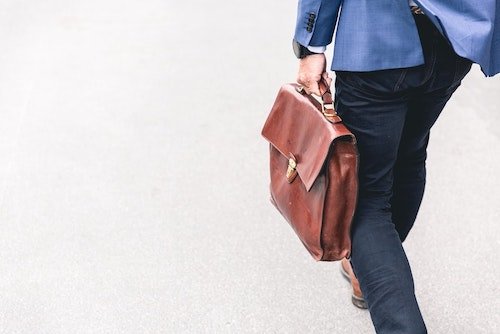Interview skills can be learned

Now you have prepared yourself for the event. But you still need to perform in the interview. When you go to an interview, you need to sell yourself. The interview is your chance to show the company that you are the best person for the job.
- Again: finding out information about the job and the company, preparing questions to ask
- Have prepared a folder with relevant information (your covering letter, CV, original and copy of certificates and references)
- Remember to relax: be friendly and polite
- Don't be critical of other companies or people
- At the end thank the employer for the interview and ask when they shall take the final decision
Avoid monosyllabic responses and volunteer supporting information whenever possible, but be brief. Give practical examples of how you have shown commitment and motivation in the past.
The day of the interview
Make sure you know where the interview is taking place and allow yourself plenty of time to get there. If you're going to be late, call the firm and let them know (take the phone number with you). Try and find out how long the interview will last, and how many people will be interviewing you.
Arrive a little early for the interview. Ten minutes spent in the reception will give you time to collect your thoughts and a chance to read the firm's brochures and study recent press releases. Listening to the receptionists and watching the comings and goings can provide a valuable insight into the type of firm you might be joining.
Dress code
Even if the organisation dress code is relaxed or casual, you should be dressed smartly for an interview. You cannot be too formal for an interview, but you can certainly fail by not being smart enough. First impressions count, and making an obvious effort to be smart shows that you are serious and want this job.
- Dress up for the interview
- Wear smart shoes
- Wear a smart formal overcoat if it's cold or wet, rather than something flashy
- Men - wear a tie
Body language
The success of communication is often non-verbal. So be aware of your body language. And remember, that you never get a second chance to make a first impression.
Look in the mirror and check your posture. Your shoulders can communicate more than words. Relax and have an open and confident attitude. A firm handshake and a natural smile can be practised. Keep remembering, you've hardly said a word and your interviewer might already be thinking positive about you!
- Smile, shake hands firmly and establish eye contact
- Address people as Mr, Mrs or Ms unless they say otherwise
- Wait to be asked to sit down
- Don't smoke, eat, drink or chew gum
Sitting slouched in a chair looking around the room gives the impression that you are not really interested or enthusiastic, whereas sitting slightly forward in your seat and engaging your interviewer's eyes gives the impression that you are interested.
- Be relaxed, but sit upright
- Do not fiddle with your hair, clothes or pens - if you tend to fidget, keep your hands apart
- Be aware of your voice: the pace and intonation can contribute very much to your success in an interview
- Do a bit of breathing exercise before the interview, to find your own pace
During the interview
You're in control of what you let the interviewer know, so take responsibility during the interview:
- If you are being interviewed by more than one person, engage the whole panel when responding
- Be clear and concise
- Use positive language
- Even if doubts are setting in, always remain positive throughout the interview: there will be time to discuss concerns later
- At the end of the interview, always be positive if asked about your interest in the job
After the Interview
It's worth making notes immediately afterwards on what you thought went well and what didn't. Experience always enhances performance, so make the most of the meeting.
- Write down any questions you failed to ask, or that occurred to you afterwards
- Note the difficult questions, so you can prepare answers next time
- Make a note of who you met in the interview, so you remember if you go back for a further interview
- Follow up with a brief thank you mail, reiterating your interest in the position. If you come up with additional information which might help the company in your favour, offer it here.






